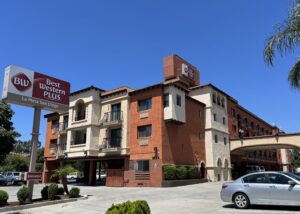California Hotel Sales Increased in Second Half of 2019
California Hotel Sales Increased in Second Half of 2019
HotelNewsNow
03/06/20
California Hotel Sales Increased in Second Half of 2019
Though the year was off to a slow start, hotel owners showed more interest in making deals in California thanks to continuing favorable conditions.
By Bryan Wroten
http://www.hotelnewsnow.com/Articles/300643/California-hotel-sales-increased-in-second-half-of-2019
REPORT FROM THE U.S.—California hotel sales increased during the second half of 2019 after a forecasted economic recession never materialized and demand continued to grow in the state.
Atlas Hospitality Group’s California Hotel Sales Survey 2019 Year-End reports that while the number of sales in 2019 fell below the running five-year average of 331, its total of 297 sales was a 6% increase over 2018. The median sales price per room dipped by 2.6% year over year, but it was still the second-highest median price per room on record. Total dollar volume grew 7.4% year over year, coming in at the fourth highest on record.
Many people were forecasting a slowdown in the economy or even a recession, so many people took a wait-and-see attitude in the first half of the year to see what would happen with the market, Atlas Hospitality Group President Alan Reay said. However, revenue per available room grew in California, and it grew at a higher rate than the national average, he said.
“People that were sitting on the sideline decided that we’re not going to enter a recession and came back into the marketplace,” he said.
Helping buyers return to the market place were the lenders, who were and still are making loans on hotels at rates never seen before, he said.
“I’ve actually seen them down as low as 3.5%,” he said. “We’ve never seen that, and we’ve been tracking hotel sales in California for over 20 years.”
Demand for budget hotels
In looking at the types of hotels sold, a number of them were larger trophy assets, but on the other end of the spectrum were smaller portfolio sales, such as Blackstone Group selling off Motel 6 properties five or six at a time, essentially exiting the budget segment, Reay said.
Hotels in the economy segment have become targets for alternate-use buyers, he said. Though this happens to hotels in other segments as well, there are a number of buyers going after motels and turning them into homeless shelters or low-income housing. This is a major change from years ago, especially now that major metropolitan cities are allowing it to happen, he said.
Cities used to be loath to give up the tax revenue hotels generated for them, but they’re facing tremendous pressure to handle the homelessness issues that they’re now allowing buyers to convert hotels and motels for housing, he said. In fact, in the Los Angeles area, if a buyer acquires a property that has had people living there long term, they are restricted from demolishing the building to build a new hotel.
This change is going to have a major effect on hotel supply in major metropolitan areas, such as San Francisco and Los Angeles, Reay said.
“I think you’re really going to have tremendous pressure on budget accommodation,” he said. “Anyone coming from a tourism standpoint. If you’re running a budget motel in a metropolitan city, it is probably the closest thing you have to a monopoly. Why? If anything becomes available, you have pressure from alternative-use buyers buying it. And then secondly is the cost of construction in California is so high that you cannot build a budget motel.”
A buyer’s perspective
Driftwood Acquisitions & Development has always been bullish on California in general, Chairman and CEO Carlos Rodriguez Sr. said. When the opportunity arose to acquire the 353-room Marriott Mission Valley in San Diego in March 2019, the company pursued it, he said.
The previous owner had spent a lot updating the hotel, so the amount of work left to be done wasn’t substantial, and the property was branded well, he said. It’s a healthy market with high enough barriers to entry to make it difficult to develop new properties in the area. The property also had additional unused land that opened up more possibilities, he said.
“So with the barriers to entry, the strength of the market, and what we saw coming down the pipeline, on the redevelopment of the old San Diego Chargers Stadium and the area in general, we thought it was a very good time to buy,” he said.
While the company was successful in acquiring the Marriott Mission Valley, it was not the winning bidder on other properties in the state, Rodriguez Sr. said. However, because California is still a desirable location to own properties, his company continues to look at potential deals in the state, even this late in the cycle. He expects other companies to feel similarly.
“We’re looking currently at a couple of deals that we’re hoping to bid and win,” he said. “We are seeing deals in California now, but we’re taking a little bit of a wait-and-see attitude based on the coronavirus and what it may happen. There probably are maybe 40% of the deals that we’re underwriting currently are in California.”


